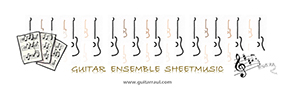George Rochberg’s American Bouquet (Versions of Popular Music) is a thirty-minute solo guitar work that repositions popular songs from the 1920s and 30s into a collection of art works for the concert stage. The piece appears amidst a burgeoning trend in art music written for guitar in the United States. In addition to Rochberg, Lukas Foss, Robert Beaser, and George Crumb have each contributed significant works to the instrument’s repertoire that either quote or borrow from the American vernacular music canon. This project examines compositional elements in Rochberg’s American Bouquet (Versions of Popular Music), noting his methods of setting preexisting material for the concert stage, and comparing those methods to recent guitar works that also borrow from the American vernacular tradition. Rochberg’s earlier pieces such as Music for the Magic Theatre and the Concord Quartets have received broad scholarly attention, partly due to the pluralism of superimposing atonal techniques with quotations from Western art music. This project views American Bouquet as a departure from Rochberg’s other treatment of pre-existing materials. Rather than quotation or juxtaposition, the Tin Pan Alley-era songs are treated organically, using the tunes as the basic musical material, whereas Rochberg’s introductions, new themes, or cadenzas play a role of superimposing Rochberg onto Gershwin rather than inserting Mozart onto Rochberg. American Bouquet presents a new, final epoch in the composer’s oeuvre: synthesis rather than pluralism.
Cochran, Matthew
http://etd.lib.fsu.edu/theses/available/etd-04032006-124157/





